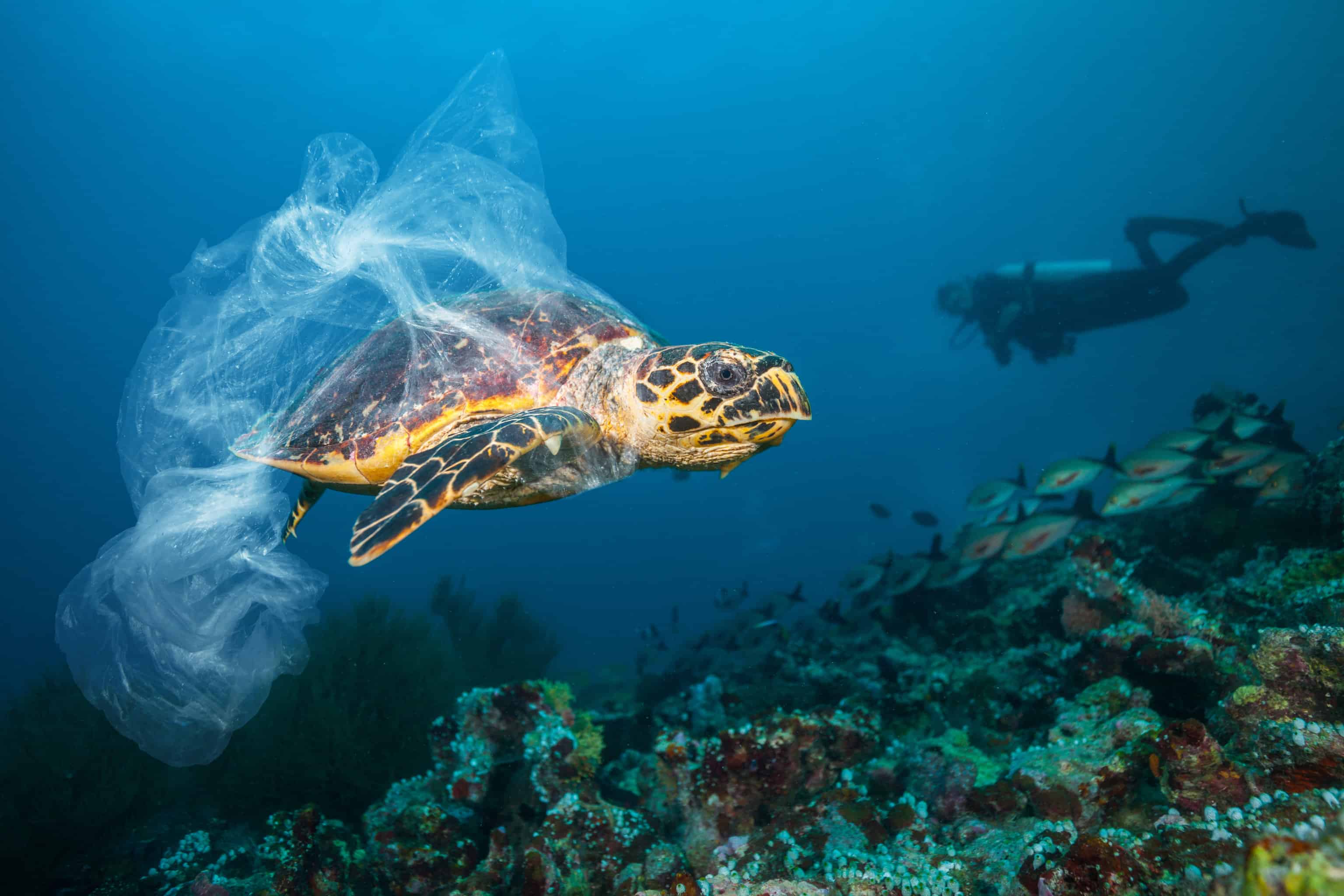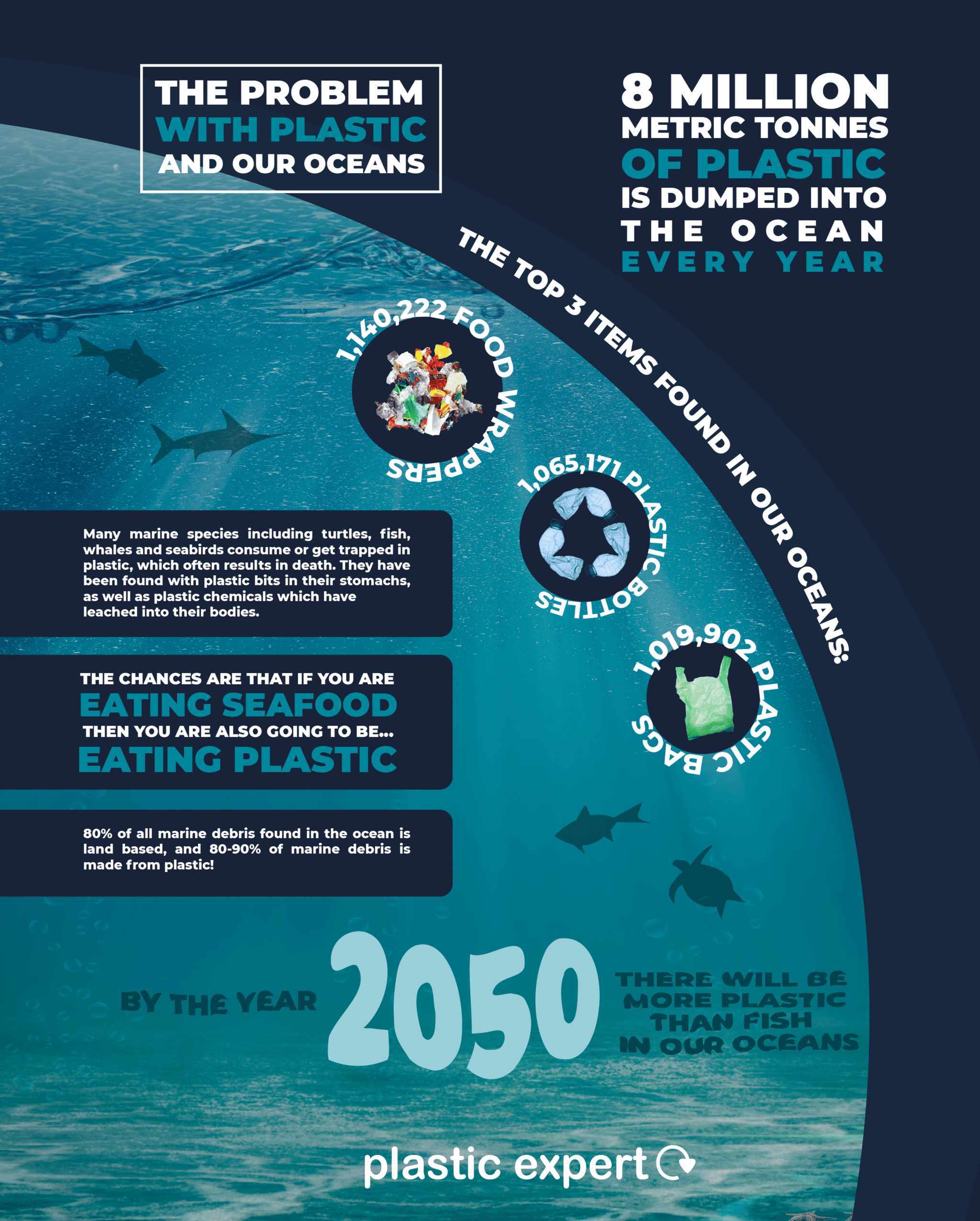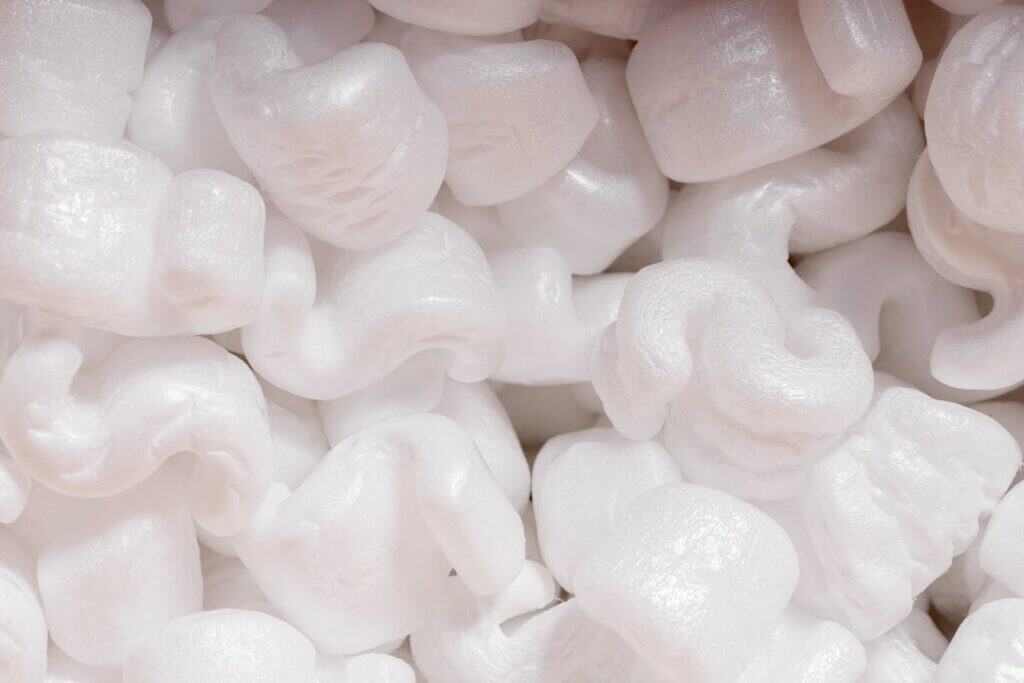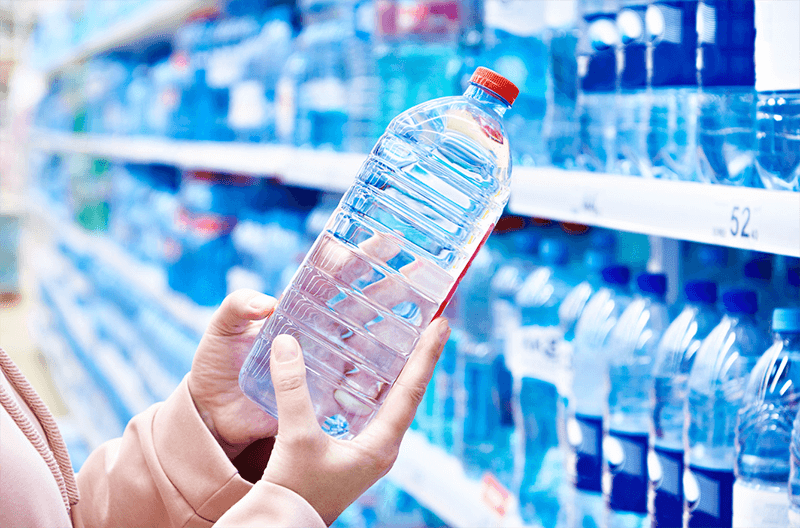The ever-growing problem with plastic in our oceans is becoming more and more apparent as we see the disturbing impacts it is having on the marine ecosystems and wildlife. Species such as fish, turtles, whales, and seabirds are at the forefront of the damage, becoming trapped and suffocating due to mistaking plastic materials for prey, which can have dire effects on millions of animals. Ocean plastic is no longer seen as just a problem but is now becoming a crisis.
Ocean plastic infographic
Plastic Packaging in the oceans
1,140,222 food wrappers, 1,065,171 plastic bottles, and 1,019,902 plastic bags have been found swirling around; with an estimated 8 million tons of plastic being thrown into our oceans each year. Not only is this becoming visible to us, but scientists have also discovered microplastics embedded deep into the Arctic Ice, presenting just how far this issue is spreading. The extreme effects of this crisis on marine wildlife have also come to light in recent studies showing plastic pollution found in 100% of marine turtles, 59% of whales, 36% of seals, and 40% of seabird species examined.
Although the statistics are frightening, there are organisations that are helping solve the problem. Prevented Ocean Plastic is a global recycling initiative that helps people all around the world earn money whilst cleaning their coastlines and preventing plastic pollution. The program which was developed by Bantam Materials has paid for the recycling of over 10,000,000,000 bottles and has sent over $250,000,000 to some of the world’s poorest coastline communities.
Organisations pushing for change
There are also other organisations that are helping by spreading awareness and teaching people about the issue, which can inspire people to make real-life positive changes to recycle correctly and learn the significant effects it can have. Plastic Oceans UK is an NGO whose mission is to ‘Stop plastic reaching the oceans within a generation’. They are experts who have created an award-winning documentary named ‘as one of the most important films of our time’ having engaged citizens into changing attitudes on the correct use and value of plastics.
The human problem
Human behavior and proper waste management systems are the main reason we have such a problem with plastic in our oceans. Many developing countries across the globe do not have proper recycling & waste collection infrastructure, whereas other nations still have members of society or discard their waste by littering & fly-tipping. Research shows Germany leads the way with 66.1% of its waste being recycled, with on the other end of the scale countries such as Ukraine and several others recording a recycling rate of 0%, with above 90% of its waste in landfills.
What can your business do to help?
One way in which businesses can help tackle this crisis is by reducing single-use plastic wherever possible. These materials can be used and disposed of in mere minutes, being a huge contributor to the problem we are having with plastic pollution. By cutting down on these materials or reusing them we are able to break through what is currently seen as the ‘norm’ to use and throw certain plastic materials, in what is a single minute to us yet a life in the ocean. When sorting out these materials to be cleared, we must start segregating plastic correctly for recycling; effective segregation of plastic and contaminated recycled products can ensure that less waste goes to landfill, resulting in less plastic filling up our oceans.
Businesses should also fulfill a duty of care process to understand how and where plastic is recycled. Ensuring people’s understanding of safe management of waste is vital in protecting our environments, and could be a huge step towards preventing this crisis. Companies are able to look at the audit supply chain to ensure the suppliers & partners operate sound recycling practices, which can allow them to locate if and where there is an issue held within their recycling chain and plastic use to fix going forward.









